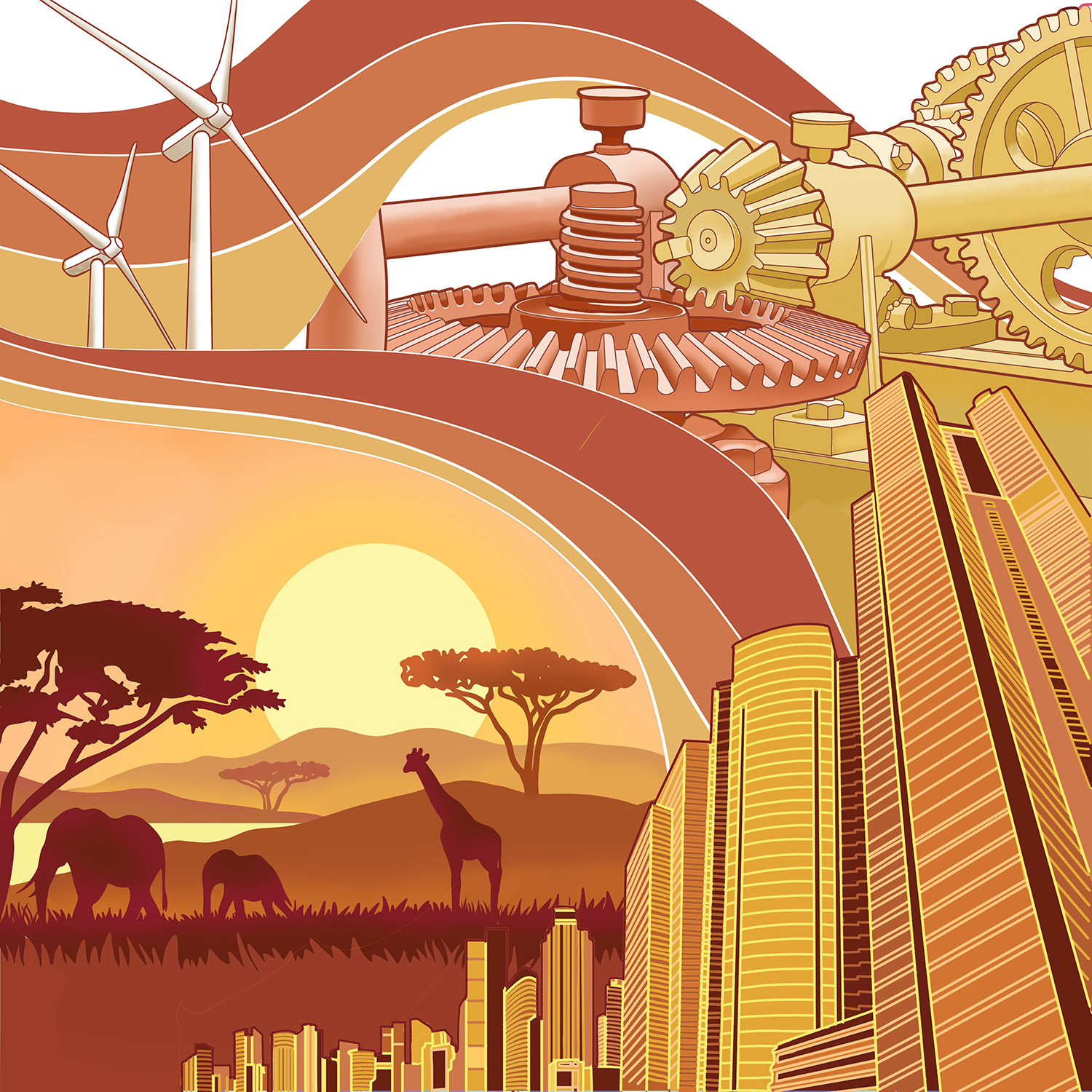
In his keynote speech at the 2024 summit of the Forum on China-Africa Cooperation in Beijing on Sept 5, President Xi Jinping outlined a new blueprint for China-Africa cooperation for the next three years and for jointly advancing modernization.
President Xi's keynote speech had some distinctive features. A "new" positioning of China-Africa relations is one of them. He proposed that China-Africa relations be leveraged to build an all-weather China-Africa community with a shared future for the new era. The expression reflects the importance China's leadership attaches to China-Africa relations, which have been a distinctive feature since the last century.
Also, the modernization that China and Africa jointly advance will be just and equitable, open and mutually beneficial, people-centric and inclusive, peaceful and secure, and eco-friendly. The new interpretation of China and Africa jointly advancing modernization is closely related to China's Global Development Initiative, the Global Civilization Initiative and the Global Security Initiative, which reflects the continuity of China's Africa policy.
READ MORE: Xi: Jointly advance modernization with Africa
The second distinctive feature is the stress on the term "practical". President Xi also proposed 10 partnership actions for jointly advancing modernization with Africa. The partnership actions include civilizational exchanges, promotion of trade prosperity and cooperation on strengthening industry chains. The 10 actions are not intentions but include specific, actionable requirements and targets. For example, on "development cooperation partnership action", the proposal is to implement 1,000 "small and beautiful" livelihood projects, and on the goal of "agricultural partnership action", the goal is to encourage two-way investment, enable African countries to retain added value and create at least 1 million jobs in Africa.
The third feature is "sincere". China's support for Africa's modernization is genuine and sincere, and it will not be swayed by Western media provocations. The 10 major partnership actions for jointly advancing modernization are based on China's own capabilities and African countries' development stages. For instance, on "trade prosperity partnership action", China will give the 33 least-developed countries in Africa zero-tariff treatment for 100 percent tariff lines. This reflects China's role as a responsible major power and its determination to help African countries to achieve modernization.
In late August, before the FOCAC Summit, I led a Chinese delegation to Cote d'Ivoire, Sierra Leone, Senegal and Mauritania in West Africa to explore cooperation opportunities in four major industries: marine fisheries, mining, agriculture and forestry. While Cote d'Ivoire is rich in cashew nuts and cocoa and Sierra Leone has healthy iron ore reserves, Senegal is a leading producer of peanuts in Africa and Mauritania has abundant marine fisheries.
The total China-Africa trade volume in 2023 was $282.1 billion. To increase the figure to $500 billion, China needs to import more African products. To this end, President Xi proposed the trade prosperity partnership action, with China willing to expand market access for African products, by giving zero-tariff treatment to all products from 33 African countries. This will not only make China a larger market for Africa but also increase the volume of China-Africa trade.
Africa is a resource-rich continent but lacks manufacturing capacity, which makes the African and Chinese economies complementary. Through industry chain cooperation partnership action, Africa can integrate its industry and value chains into the global industry and value chains and, with the help of China, can promote industrialization, and export more resources while retaining added value.
For instance, Cote d'Ivoire consumes 650,000 tons of fish annually but can farm only 100,000 tons, leaving a 550,000-ton gap. China has excellent tilapia farming technology that can help Cote d'Ivoire to narrow the production gap, thus increasing employment, improving production, and boosting tax revenues and foreign exchange income.
Why Africa, despite its rich resources, has been developing at such a slow rate? I believe it is due to the lack of skilled workers and advanced technology. This issue can be addressed through cultural exchange partnership action. China is willing to work with Africa to advance the Future of Africa-Vocational Education Cooperation Plan, co-establish engineering institutes, and build 10 Luban Workshops, creating opportunities for Chinese investment in Africa.
ALSO READ: China, Africa vital for Global South's modernization
The Institute for African Studies of Guangdong University of Foreign Studies and the consulate general of Cote d'Ivoire in Guangzhou have signed a strategic cooperation agreement, under which Cote d'Ivoire can inform the Chinese side of its human resource needs for the development of its industries, and the Institute for African Studies will provide the necessary vocational education resources for Cote d'Ivoire nationals in Guangzhou.
During our visit to the four West African countries, the officials there sought Chinese companies' technical support for their environmental protection industries. Shenzhen Zhongke Green Construction Environmental Protection Engineering Co specializes in water pollution treatment and handling of construction waste. We can arrange for the consulate general officials of Cote d'Ivoire and Senegal in Guangzhou to visit the company and establish a green development partnership with it to facilitate the African countries' green transformation.
In other words, President Xi's call for jointly advancing modernization with Africa has made it possible for China and Africa to jointly realize a brighter, greener modernization.
The author is the dean of the Institute for African Studies of Guangdong University of Foreign Studies.
The views don't necessarily reflect those of China Daily.


